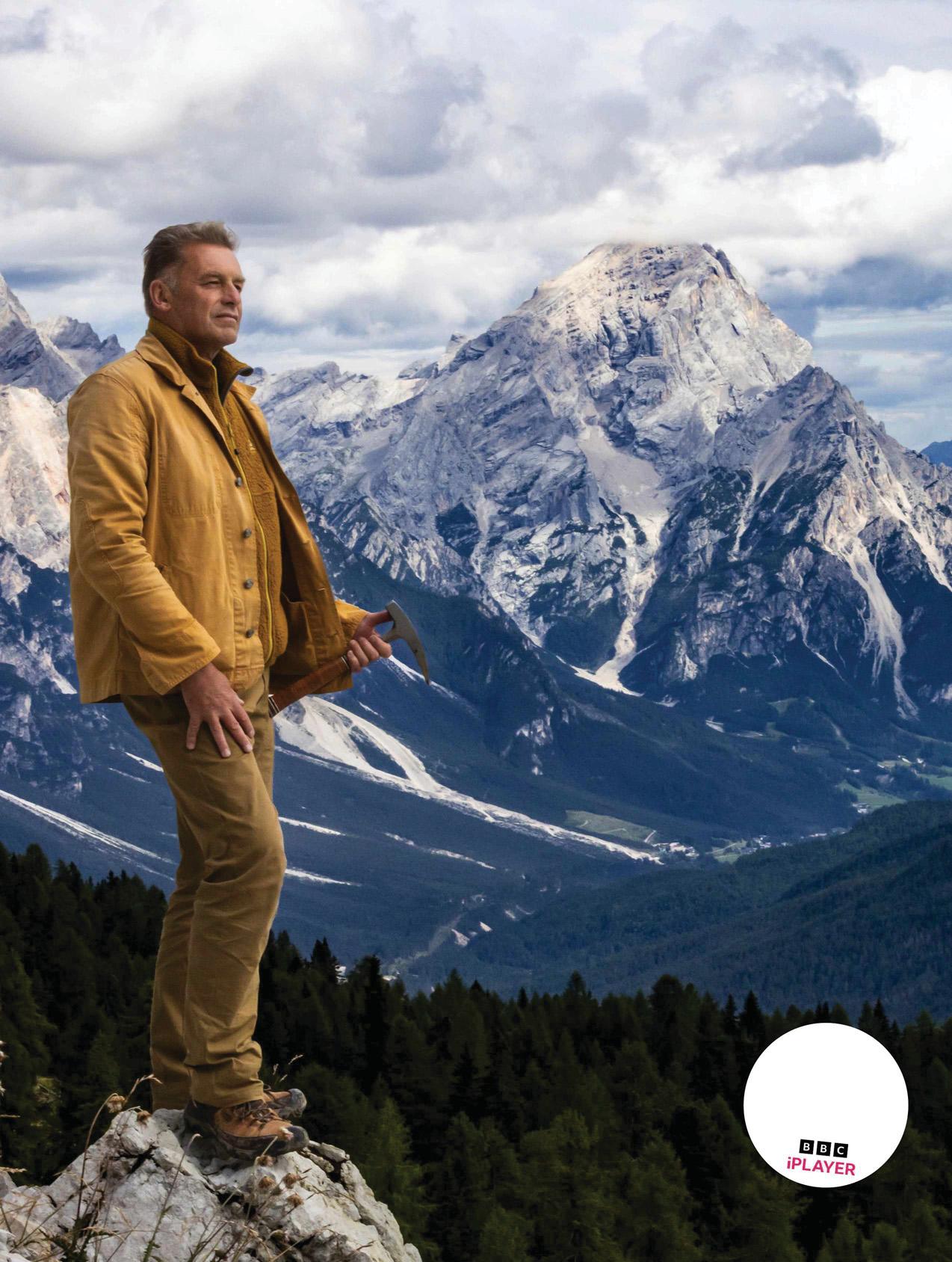試す 金 - 無料
CHRIS PACKHAM VERSUS THE WORLD
BBC Science Focus
|August 2023
After conquering wildlife programming, presenter Chris Packham is taking on the planet in Earth, a BBC series that sheds new light on the history of our home. He talks Noa Leach through the show's surprising science and his guilty conscience

The camera pans around a purple mountain rising through a lush green forest. But the film glitches... something is wrong. The scene flickers with a hellish inverse: a deadly volcanic eruption. The Earth's crust splits and red light bleeds from its opening. Deadly rivers of lava veil the now-black rock, and ash and toxic gases spill into the air.
This fiery inferno is the deadliest volcanic event in Earth's history, around 250 million years ago. It's just one of many moments that have brought the planet we call home close to death - and one of the five key events that shape the BBC's new Earth series.
This is the BBC Natural History Unit's usual output reborn as a forensic crime thriller, with fossils as evidence. With Chris Packham presenting, Earth exposes the clues hidden in fossil records that reveal all the times the planet - and our long-gone ancestors - have almost been destroyed over the last 4.5 billion years.
In this way, Earth aims to show that our future has already happened, with the current climate crisis eerily echoing the past. But will we survive it this time around? We got the verdict from Chris Packham himself...
YOUR NEW SERIES COVERS BILLIONS OF YEARS OF HISTORY. HOW ON, AHEM, EARTH DID YOU FIT THAT INTO ONE SERIES?
Our mission was to present the series as a biography of our planet. It's not just about how Earth was born, but its bumpy life journey - akin to how it met its first girlfriend, got married, then divorced and then happily remarried.
We wanted to highlight the moments that had a significant impact on the planet - the key geological, planetary and life forces. And how they interact.
For example, when the lava was beneath the surface of the planet, it was burning coal, which raised the temperature of the planet by 10°C. This was catastrophic. But now here we are digging it up and burning it again!
このストーリーは、BBC Science Focus の August 2023 版からのものです。
Magzter GOLD を購読すると、厳選された何千ものプレミアム記事や、10,000 以上の雑誌や新聞にアクセスできます。
すでに購読者ですか? サインイン
BBC Science Focus からのその他のストーリー

BBC Science Focus
ARE PSYCHOPATHS REALLY THAT GOOD AT LYING?
Picture infamous psychopaths from fiction, such as the eerily cold and calculating Patrick Bateman in the film adaptation of American Psycho, and they certainly seem like master deceivers. But what about real-life psychopaths? Research confirms that psychopaths are more inclined to lie to get what they want, and that they typically display a striking fearlessness - as if they have ice running through their veins.
1 min
January 2026
BBC Science Focus
WHY DO WE HAVE TWO OF SOME ORGANS, BUT ONLY ONE OF OTHERS?
The majority of animals on Earth, humans included, are bilaterally symmetrical. It means we can be divided roughly into two mirror-image sides. Evolutionary biologists believe that it has been like that for at least 300 million years, and because life organised this way survived, so did symmetrical design. Hence, two eyes, two ears, two lungs and two kidneys.
1 min
January 2026

BBC Science Focus
WHY DO CATS PREFER TO SLEEP ON THEIR LEFT?
I've said it before, and I'll keep saying it again and again and again: who knows why cats do anything?
1 min
January 2026

BBC Science Focus
FORGET COUNTING CALORIES TRY THIS INSTEAD...
Calorie counting isn't just difficult, it's riddled with problems that make it practically useless for anyone trying to lose weight.But there are alternatives
9 mins
January 2026

BBC Science Focus
SIGNS OF LIFE
The more planets we find outside our Solar System, the better our chances are of finding life on one of them. But if there really is life out there, how do we spot it?
8 mins
January 2026
BBC Science Focus
WHAT ACTUALLY MAKES SOMEBODY COOL?
Most of us have probably wanted to be cool at some point in our lives, and these efforts can have a big influence on the things we buy, the way we dress, the hobbies we invest in, the people we look up to and even the words we use.
2 mins
January 2026

BBC Science Focus
It's TIME to WAKE UP and SMELL the roses
What if the pursuit of happiness in the traditional sense – chasing wealth or power – is the very thing stopping you from being happy? Researchers are beginning to understand that spending time enjoying the simple things might be the secret ingredient to enjoying a happy, healthy life
8 mins
January 2026

BBC Science Focus
THE AARDVARK
In a time when people are being asked to consider eating insects, we should, perhaps, learn a thing or two from the aardvark (Orycteropus afer), Africa’s ant-guzzling gourmand. On an average night, the big-schnozzed mammal devours up to 50,000 of the crunchy critters.
2 mins
January 2026

BBC Science Focus
ADD WEIGHT TO LOSE WEIGHT
A very basic kind of wearable could make your New-Year-weight-loss plans stick
3 mins
January 2026

BBC Science Focus
AHEAD OF THEIR TIME
The Maya civilisation is known for its art and architecture.
8 mins
January 2026
Translate
Change font size
